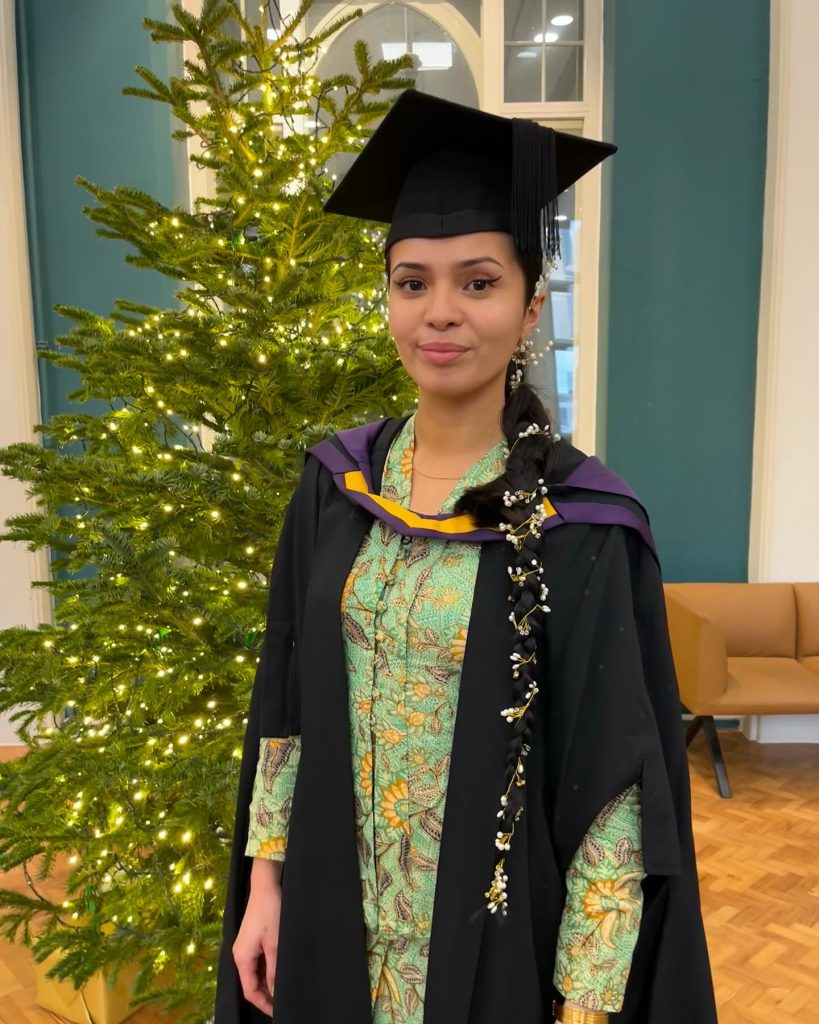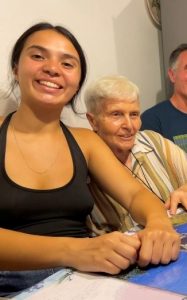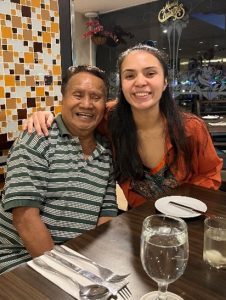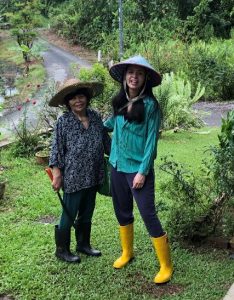
Lauren Stella: A story for Inspiration
Globally, 129 million girls are restricted from attending school (UNICEF). Barriers facing girls are deep-rooted in society and are exacerbated by poverty and lack of suitable infrastructure (OHCHR; World Bank). But investing in girls’ education and enabling them to become healthier and earn higher wages has the ability to transform communities and greatly increase productivity (UNICEF).
From a young age, I’ve felt an almost instinctual life path post-compulsory school education to attend college and then continue into higher education. I realize this is my privilege which was created, but not shared, by the women 2 generations before me.
My Nonna (Italian grandmother) grew up in Italy during the 1950-60’s. During this time, it was normal for girls to be schooled up until middle school, after which they would likely pursue a career in retail, admin, or other to contribute to the family income until they were married to a man. There were no student finance loans on offer during this time and so lower income families invested solely in their sons to attend University in pursuit of higher earning careers. But when it became clear that my Nonna was excelling in school compared to her male counterpart, their mother campaigned to make her the sole recipient of this investment instead. With this support, my Nonna attended high school and was one of very few women at the time to attend her local university whereafter she went on to become a physics teacher.
My next story is one of allyship. On my other side, my Sumuk and Babai (Malaysian grandmother and grandfather) were born and raised in the humble Borneo rainforest. Also during the 1950’s, here, compulsory schooling ended after primary school, after which boys from lower income families may search for work while the girls may stay at home to look after their family or to work – least, this was the story for my grandparents, even predating the completion of their primary education. They were never able to return to school nor gain any qualifications.
My mum tells me, “Every individual within those generations had a dream. It’s whether or not the environment inhibits that dream… but their dreams live on through future generations”. And so, as the main earner within this context, my Babai worked hard to ensure all his children would receive the education he did not, regardless of their gender. Now, almost all his children have attended university, with half of them moving abroad to pursue their career. And with each new generation, this legacy goes on and we strive further. When I imagine my future, this is not constrained by my gender identity as was the hopes of the generations preceding me. Today, my sister is set to be the first of our Malaysian family to graduate as a doctor and I hope to follow close behind her with those same accomplishments.



From the left: Sat at the table with a cheesy grin on my face next to my Nonna; Celebrating my Babai’s birthday this year; Pictured with my Sumuk after collecting fruit from our land – still smiling despite the heat and exhaustion!
This year for International Women’s Day, let us #InspireInclusion by sharing stories of barriers but also successes. And let us create opportunities towards a more gender equal world.
Resources:
- UNICEF. ‘Gender equality and women’s rights’. Available at: https://www.unicef.org/education/girls-education
- OHCHR. United Nations. ‘Gender equality and women’s rights’. Available at: https://www.ohchr.org/en/topic/gender-equality-and-womens-rights
By Lauren Stella – Data Analyst Assistant in the Equality, Diversity and Inclusion Directorate






0 Comments